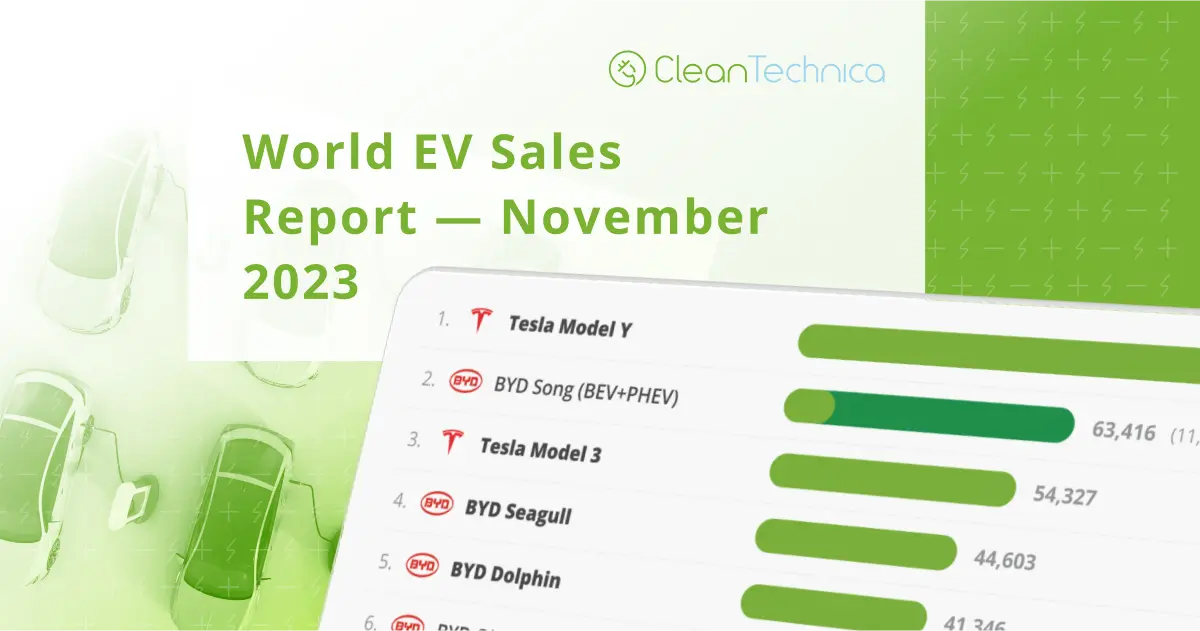Small clarification: the 19% includes Plug-In Hybrids, 13% for BEV only
Yes, though battery-only range on a lot of the newer PEHVs is high enough that if you actually charge them, you don’t end up using gas except on road trips.
The average commute is 10 miles, so that has been the case for years for anybody that can charge at work
A lot of people can’t do that, and it’s a big deal that people have the range for weekend day outings without needing gas.
Oh, no I don’t think any PHEV’s have good weekend outing range yet, for that I’d say 100 miles range
Queue all the deniers rushing in here to point out every little issue with EVs…
Queue all the fans rushing in here to point out how they are saving the enviroment driving a huge ass SUV with lithium mined by poor african children.
Cars are bad. All cars, yours too.
That is rather easy:
They are cars!
It’s easy enough to say that (and I agree we have a car problem), but it’s not really realistic to shift from a car dependent to a non-car world overnight, no matter how much it is the right thing to do.
There will, necessarily, be a transition period.
I mean they’re still pretty bad, especially if we keep making the things as stupid big as we are. They’re not exactly little issues.
I’ll start. Not specifically an EV problem so much as manufacturer and distributor problem, but I would appreciate if when I buy a new electric vehicle, I don’t have to pay a subscription service to use features like seat warmers, or essentially pay for a new car if the battery protector cap is slightly bigger than it is supposed to, and be told I’ll be raped in a parking lot if I ask a third party repair shop to fix it, or lose all warranty if I fix it myself.
Fair enough, but that’s not going to be unique to EVs, is it?
It is when it comes to car batteries because third party car mechanics cannot fix these unless the manufacturing companies share how to, which they’re lobbying very hard to not have to do. (And make these commercials where you get raped in parking lots, to scare people away from third party repair shops)
You are essentially forced to scrap your EV and buy a new one because the manufacturing companies charge you the same price as the entire car to replace the battery that they actually don’t know the full extend of the damage on.
Now, how good for the environment do you think it is to scrap entire cars for possibly a minor issue?
Louis Rossmann makes a ton of great videos addressing the problem with the EV industry and fights for the right to repair in various industries.
I am not against the idea of EVs. I just would not spend my money on one until the right to repair has been enforced on EVs. But also, I do not own a car nor do I have a license because I can rely on public transport where I live, so I probably won’t buy any car in my lifetime.
Having seen teardowns, batteries arn’t that scary to third party mechanics who know what they are doing. The hard part tends to be the availability of used parts isssue on new models of EV, and a lack of industry training. While there are mechanic training courses for a wide range of technologies offered, it takes time for thouse students to make their way into the workforce.
The bigger issue we’ve been seeing in the last decade or so in repair is that mechanics are still expected to buy and pay for all their tools out of pocket, instead of that being provided by their employer. Especially bad when manufacture try and make absurd money on brand specific tools dispite nominal legislative controls designed to prevent exactly that. Combined with low pay and it becomes a very bad industry to go into for new talent, which has led to a gut of old talent near retirement age that often lacks training on diagnosing computer issues.
The other major issue is that manufacturers are increasingly trying to move to absurdly marked up subscription models, especially for basic services, and trying to push them into everything.
Finally also have cars which tie everything into a single radio antenna module becuse it saves costs and keeps people from removing the data harvesting capabilities.
Thing is, none of this is unique to or even more common in EVs. Modern ICEs need far more advanced computers and sensors than any EV to try and run the engine precisely enough to meet even modest emissions targets. Tool and training issues are industry wide. The most egregious subscription and data harvesting has been by BMW, GM, Toyota, although Tesla isn’t better by much.
All of this is a problem because you can only keep an older car on the road for so long, at least without it being an expensive hobby. Used cars can only go for so long economically, avoiding EVs ain’t gonna help you. Without across the board legislative and judicial action, all of these problems will continue to get worse in All new cars.
Fair point. No matter what, people are screwed. But in that case, I feel having no car at all is better. I know this is impossible for most people, especially in the car-centric US, so I admit it is a difficult issue.
That should be 19% so far.
Hopefully sodium ion brings down costs enough to make a massive dent. A lot of people have likely been holding out for them





